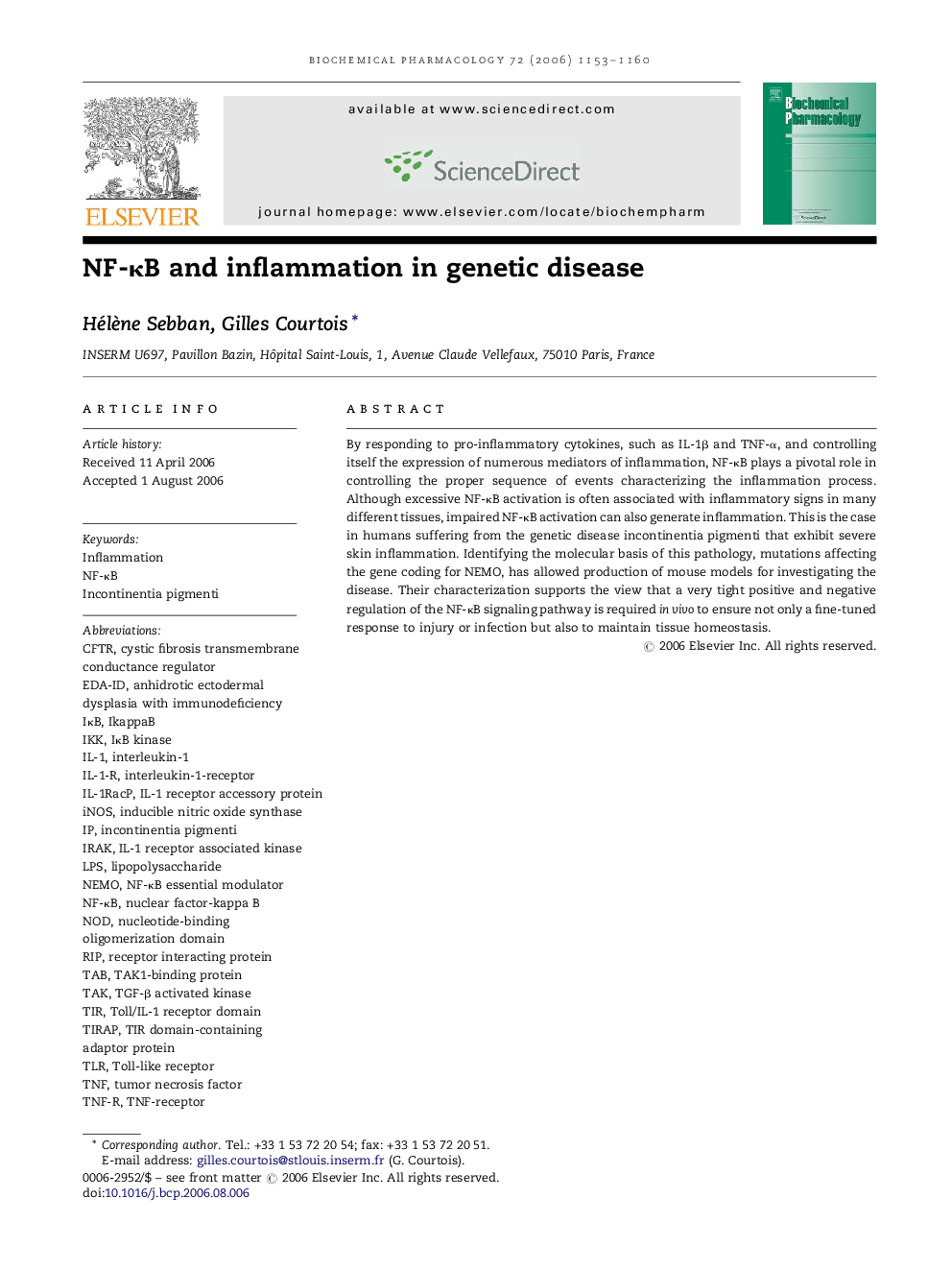| Article ID | Journal | Published Year | Pages | File Type |
|---|---|---|---|---|
| 2515364 | Biochemical Pharmacology | 2006 | 8 Pages |
By responding to pro-inflammatory cytokines, such as IL-1β and TNF-α, and controlling itself the expression of numerous mediators of inflammation, NF-κB plays a pivotal role in controlling the proper sequence of events characterizing the inflammation process. Although excessive NF-κB activation is often associated with inflammatory signs in many different tissues, impaired NF-κB activation can also generate inflammation. This is the case in humans suffering from the genetic disease incontinentia pigmenti that exhibit severe skin inflammation. Identifying the molecular basis of this pathology, mutations affecting the gene coding for NEMO, has allowed production of mouse models for investigating the disease. Their characterization supports the view that a very tight positive and negative regulation of the NF-κB signaling pathway is required in vivo to ensure not only a fine-tuned response to injury or infection but also to maintain tissue homeostasis.
